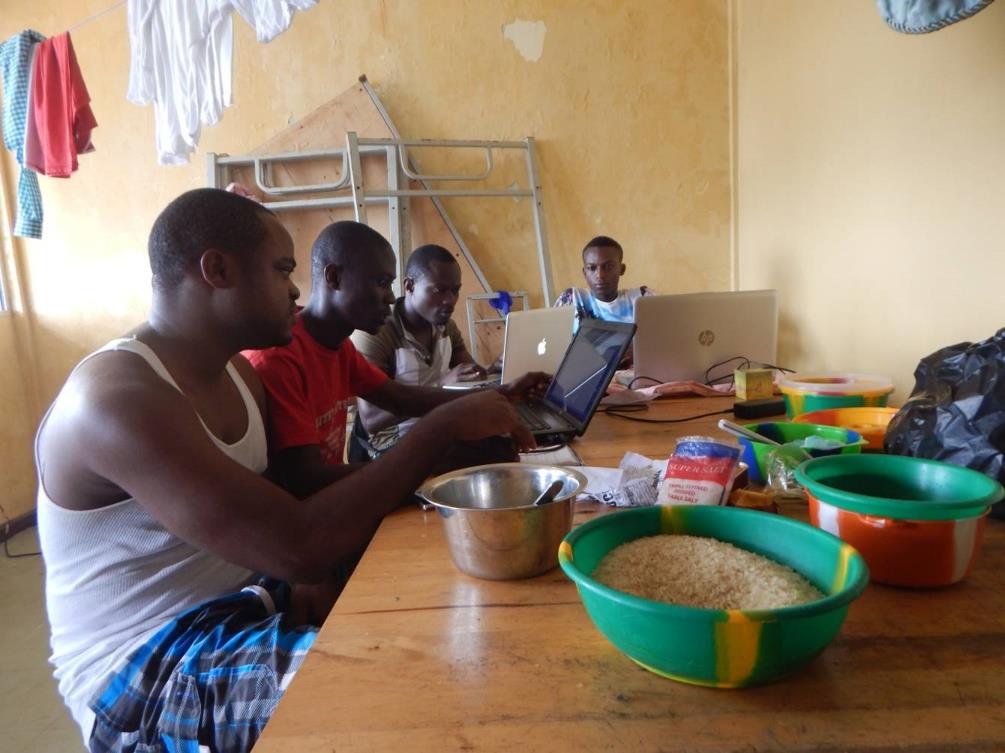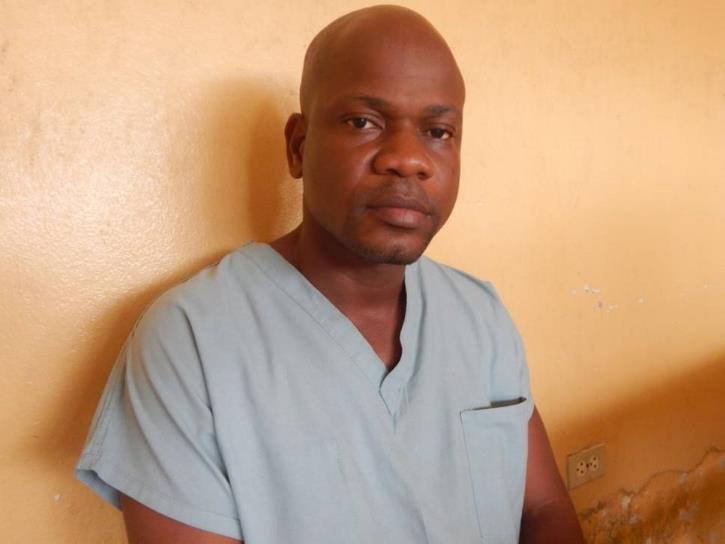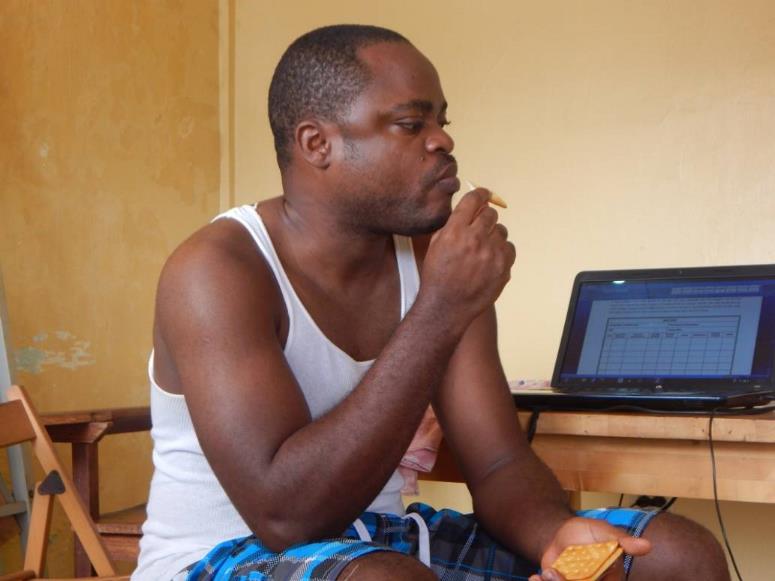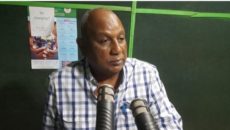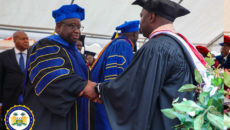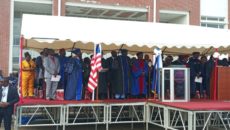MONROVIA, Montserrado – It is no secret that Liberia has an acute shortage of doctors.
One of the tools available to the government is to train doctors locally at the nation’s only medical school – the A. M. Dogliotti School of Medicine. However, although the government guarantees free education for students who want to become doctors, nurses, and pharmacists, students are finding that the school is not truly free.
The medical school was established in 1968 under the vision of the late President William V. S. Tubman with a call for free medical education to address the shortage of doctors and medical personnel in the country.
That need is even more urgent now as the Liberia Medical and Dental Association recently reported that Liberia has only 298 doctors to serve its 4.5 million people.
Worse, the Ebola outbreak significantly impacted healthcare professionals, killing four doctors, 51 nurses, and 191 other health workers, according to Dikena G. Jackson at the Ministry of Health.
However, based on interviews with several medical students and administrators, it appears that the government has not been prioritizing the needs of the medical school, which is operated under the University of Liberia system. For the last seven months, the current batch of medical students has not received the US$200 monthly stipend used to cover expenses such as food, living expenses, and stationery.
Additionally, in 2015, students were pressured into waiving nine months of their stipend out of the 15 months owed them because of a “budget shortfall.â€
Due to the delay in receiving their stipends, some students resorted to borrowing money from families and friends to meet their basic needs.
The lack of support also extends to the school’s infrastructure. The library lacks many of the medical books needed for school, leading some students to purchase the expensive books at the cost of US$200-$300.
The school’s dormitory, which was built to accommodate 71 students, with two students sharing a room, is overcrowded. Four to five students now share a room, said Dyujay G. Karnga, president of the Liberian Medical Students’ Association.
“There are students who commute [from] as far as Bong County to attend lectures without having any relative in Monrovia,†Karnga said.
Karnga added that the government’s promised package includes tuition, stipend, housing, transportation, cafeteria, library, and the internet. Even though students enjoy 24-hour electricity at the school’s dormitory, he said there is no running water, leading them to fetch water from a nearby hand pump.
“It is very annoying climbing the stairs of a three storage building every morning and evening with a bucket of water,†Karnga noted.
The students also lack internet access on the campus, which leads them to spend additional money to purchase scratch cards to assist them in conducting research.
“This is seriously hampering our studies as medical students,†Karnga said.
S. Michael Chu Nepay, a senior pharmacy student, said he was not pleased with the condition of the library.
“The lack of modern medical books at the school library is a serious setback to our studies,†he said.
Nepay said he and some of his friends have accumulated debt in order to cover their transportation and food costs.
“Imagine students studying for their final exams and have to feed on biscuits for several hours,†he said. “To eat in the morning, we put money together and cook for ourselves or at times source food outside of the dormitory.â€
Despite the challenges, Nepay said he feels good being a medical student at the School of Pharmacy. But he said the government needs to prioritize the medical schools and support doctors and nurses because they are important to the health care system.
Dr. Vuyu Golakai, the dean of the College of Health and Life Sciences at the University of Liberia, said the notion that the government provides free education at the medical school is not entirely true.
He suggested that the government should view the medical school as an investment. While the government covers tuition, room, board among others, the students also have to work for the country after graduation, he said.
After graduating from medical school, new doctors are obligated to work in the country for three years. They usually work one year as interns and when they qualify for their medical license, they have to work for two years in rural Liberia.
The government pays US$15,000 a year per student, amounting to US$75,000 for the five years of medical school.
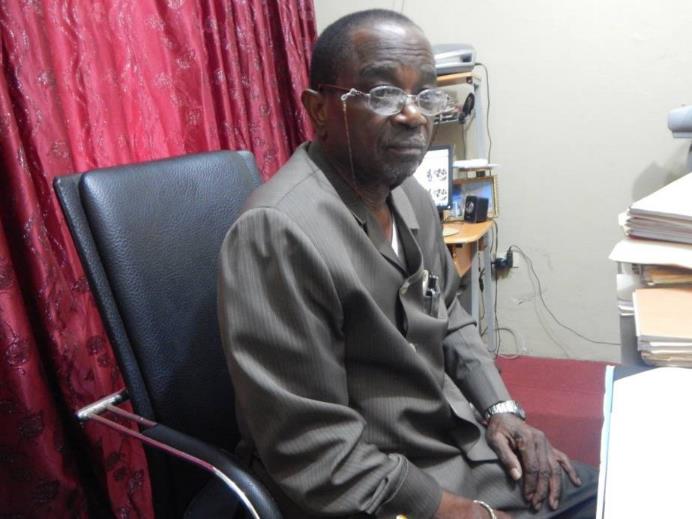
Dr. Vuyu Kanda Golakai, dean of the College of Health and Life Sciences, University of Liberia. Photo: Zeze Ballah
Golakai said he is disappointed by the government’s failure to maintain and retain doctors trained at the school.
The enrollment at the College of Medicine and Life Sciences include 231 students at the School of Medicine, 79 at the School of Pharmacy, and 20 in nursing and midwifery.
In 2013, 38 students graduated from the college although there was no graduation held in 2014 due the Ebola outbreak.
Then in 2015, 35 students graduated while another batch of 64 is expected to graduate in December 2016 with 42 students from the School of Medicine and 22 from the School of Pharmacy.
Featured photo by Zeze Ballah
